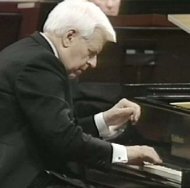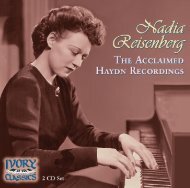IC 76003 Booklet - Ivory Classics
IC 76003 Booklet - Ivory Classics
IC 76003 Booklet - Ivory Classics
You also want an ePaper? Increase the reach of your titles
YUMPU automatically turns print PDFs into web optimized ePapers that Google loves.
taught scales with many black notes first (the C major scale came last as the<br />
most difficult), using the thumb on the black notes and sometimes passing it<br />
under the fifth finger (with a necessary bend of the wrist).<br />
The piano was in transition in Chopin’s day, having evolved from a delicate<br />
wooden instrument to a bold instrument with a very different key<br />
action and a reinforced soundboard, allowing richer sympathetic vibrations<br />
and increased carrying power for the concert hall. In Paris at that time there<br />
were some 180 manufacturers producing a wide range of experimental<br />
pianos, leading its citizens to refer to their city as Pianopolis. Some manufacturers<br />
developed a more expressive instrument, one equal to the demands<br />
of Chopin’s works.<br />
Countless piano studies were composed in the eighteenth century and<br />
early in the nineteenth by the likes of Berger, Moscheles, Hummel, Steibelt,<br />
Reicha, Czerny, Cramer, Kalkbrenner and Clementi. Their starkly educational<br />
purpose was strictly to perfect the techniques needed to play the repertoire<br />
of the day, and they thus lacked the musical and affective properties required<br />
for pieces intended for the public. Chopin’s etudes, however—twenty-seven<br />
of them in all—eclipsed the earlier models and led piano technique to the<br />
next logical step, exploiting the new resources of the evolving instrument,<br />
and all its color possibilities, and exploring revolutionary techniques through<br />
their stunning inventiveness. Each study concentrates on a single technical<br />
problem and fully exploits the possibilities of the human hand, so much so<br />
that a leery Ludwig Rellstab wrote that “those who have crooked fingers may<br />
put them right by practicing these studies; but those who have not, should<br />
– 4 –














